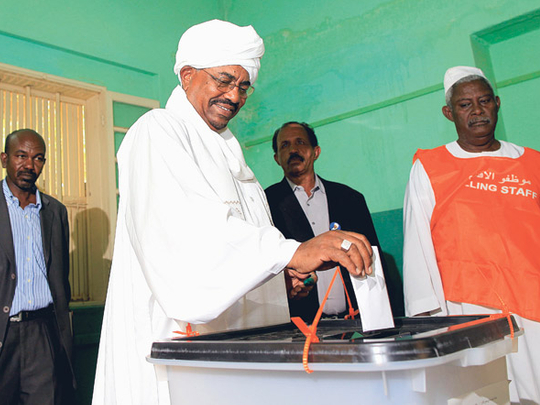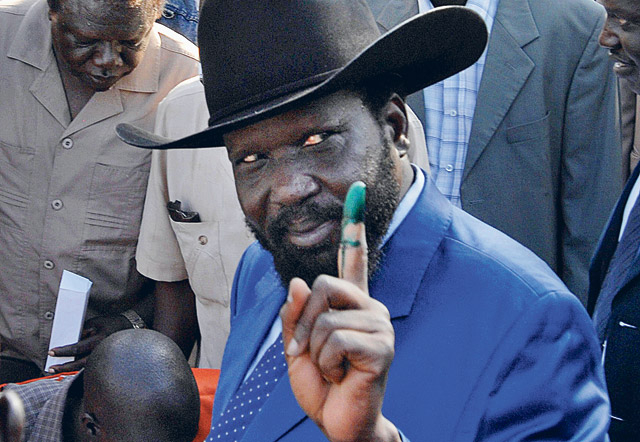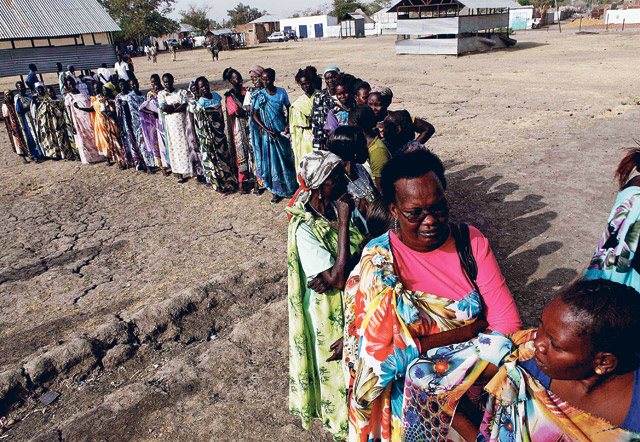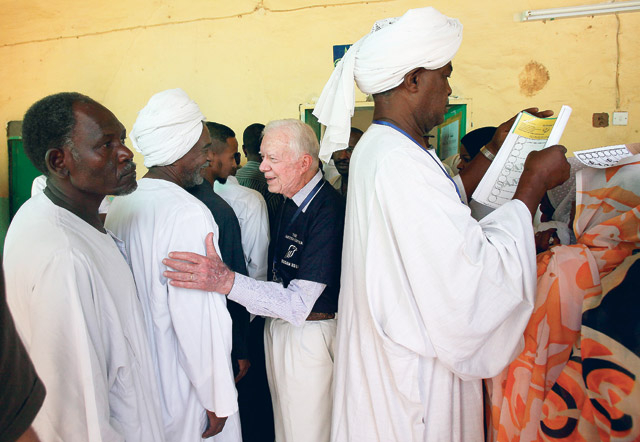
Khartoum/Juba: Confusion, delays and allegations of fraud marked the start of Sudan's first multi-party elections in a quarter-century, a vote that will test the fragile unity of Africa's biggest country.
The three-day election will be a key indicator of whether Sudan can fend off renewed conflict and humanitarian crisis as it heads toward a 2011 referendum that could bring independence for the oil-producing south.
The results are widely expected to keep Sudan's two most influential men in power: President Omar Al Bashir, who faces an arrest warrant from the International Criminal Court for allegedly planning war crimes in the western Darfur region, and Silva Kiir, who leads largely autonomous south Sudan.
In the capital Khartoum and across the country, there were long queues and chaotic scenes outside polling centres. Kiir was forced to wait 20 minutes under a tree for his voting station to open in the southern capital Juba and then spoiled his first ballot by putting it in the wrong box.
Police out in force
Would-be voters lined up in the morning in Khartoum, where police were out in force on unusually quiet streets. Many voters were hindered by delays in getting ballots to polling places, ballot mix-ups and names missing from voters' lists.
But by yesterday afternoon, no major unrest was reported as people voted to choose a national president, a leader of south Sudan, national and local parliaments, and governors of all but one of the country's 25 states.
Yet the elections' credibility took a blow even before voting started, as leading opposition parties pulled out candidates and blamed the government for widespread vote-rigging and intimidation. Election officials, trying to plan a complex election for the first time in a generation, denied the charges.
"It's not going to be a perfect election. There are no such things," former US President Jimmy Carter told reporters as he joined observers from his Carter Center in Khartoum.
"But if we feel that in the elections the will of the voters has been expressed adequately then that would be the primary judgment we will make."
In Khartoum, voters stood or sat in the searing heat for more than three hours, many of them voting for the first time in a complex polling process. In northern Sudan, electors got eight voting forms; in the south, they must grapple with a dozen.
Men and women waited in separate lines, dipping a finger in indelible green ink before voting at cardboard booths.
Al Fat'hi Khedr, a 55-year-old pilot who came to vote in Khartoum's Riyadh district, complained that authorities should have opened more voting centres to cope with the crowds. "There are a lot of crowds and there should have been more information because there is a whole new generation that have never voted," he said.
Up to 300 women in bright clothes and other voters waited patiently for more than an hour in the southern town of Malakal as officials tried to find a vehicle to deliver voting forms, a Reuters witness reported.
When Al Bashir, a military man who took power in a coup in 1989, turned up to vote at a school near Sudan's army headquarters, he shouted "God is greatest" to supporters. He then took ten minutes to cast his vote while voters from the army and security services waited outside.
In the south, where most follow Christianity or traditional beliefs, there was a palpable sense of excitement as people took part in polls they see as a prelude to the 2011 referendum that could give them independence from the mainly Muslim north.















